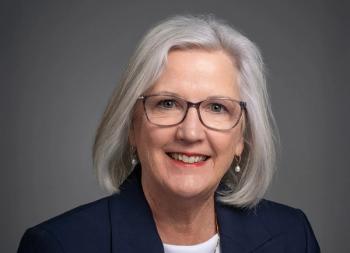
James Quarles of Redesign Health talks about starting healthcare companies | Data Book podcast
The former CEO of Strava is now a venture chair for Redesign Health, which has launched dozens of companies. He talks about the ingredients for success and some all-too-common mistakes.
James Quarles says he wasn’t necessarily looking for a healthcare role.
After previously serving as CEO of Strava, the social network for athletes, Quarles is now a venture chair at Redesign Health, which has launched 50 healthcare startup companies in less than six years.
In the latest episode of Data Book, a podcast from Chief Healthcare Executive®, Quarles talks about what healthcare startup companies should be doing as they try to bring new solutions to market.
“We build healthcare companies,” Quarles says. “That is what we're in the business of doing. And we don't do devices. We don't do molecules. I think everything that's in the middle of enabling clinicians, payer, provider tech-enabled services, that's where those 50 businesses largely lie.”
He says his time as CEO of Strata helped prepare him for his current role. “That was just a very neat place to learn about digital wellness,” he says.
In a lively conversation, Quarles talks about the ingredients of successful startups, what founders should be doing, and some common mistakes that should be avoided.
Quarles stresses the importance of having a narrow focus and not attempting to bite off too much in the development of a young company.
“I always say startups die actually of indigestion, not starvation,” he says.
Quarles outlines the continued challenges for funding for digital health startup companies, and the importance of developing solutions that can be scaled. He highlights the need for designing technology that can be integrated into healthcare solutions and designed for very specific uses. Echoing other healthcare business leaders, Quarles says
Quarles also sheds light on how Redesign Health decides when a company is worth backing. The company researches proposals and then helps recruit founders to launch health tech companies.
“It's this art honestly, combined with science, and trying to figure out when do we have enough signal to say it's a big market, and we think we can make a difference to it,” Quarles says.
While the concept of disruption is popular in business, Quarles says there’s a need to work with hospitals and payers in overcoming their challenges.
“I think there's great problems to solve with incumbents who just are in the system,” Quarles says. “Big health systems have lots of problems and challenges. The payers have large challenges. And so, for as much as there's this concept of disrupting the system, I think we all like to build with the system.”































